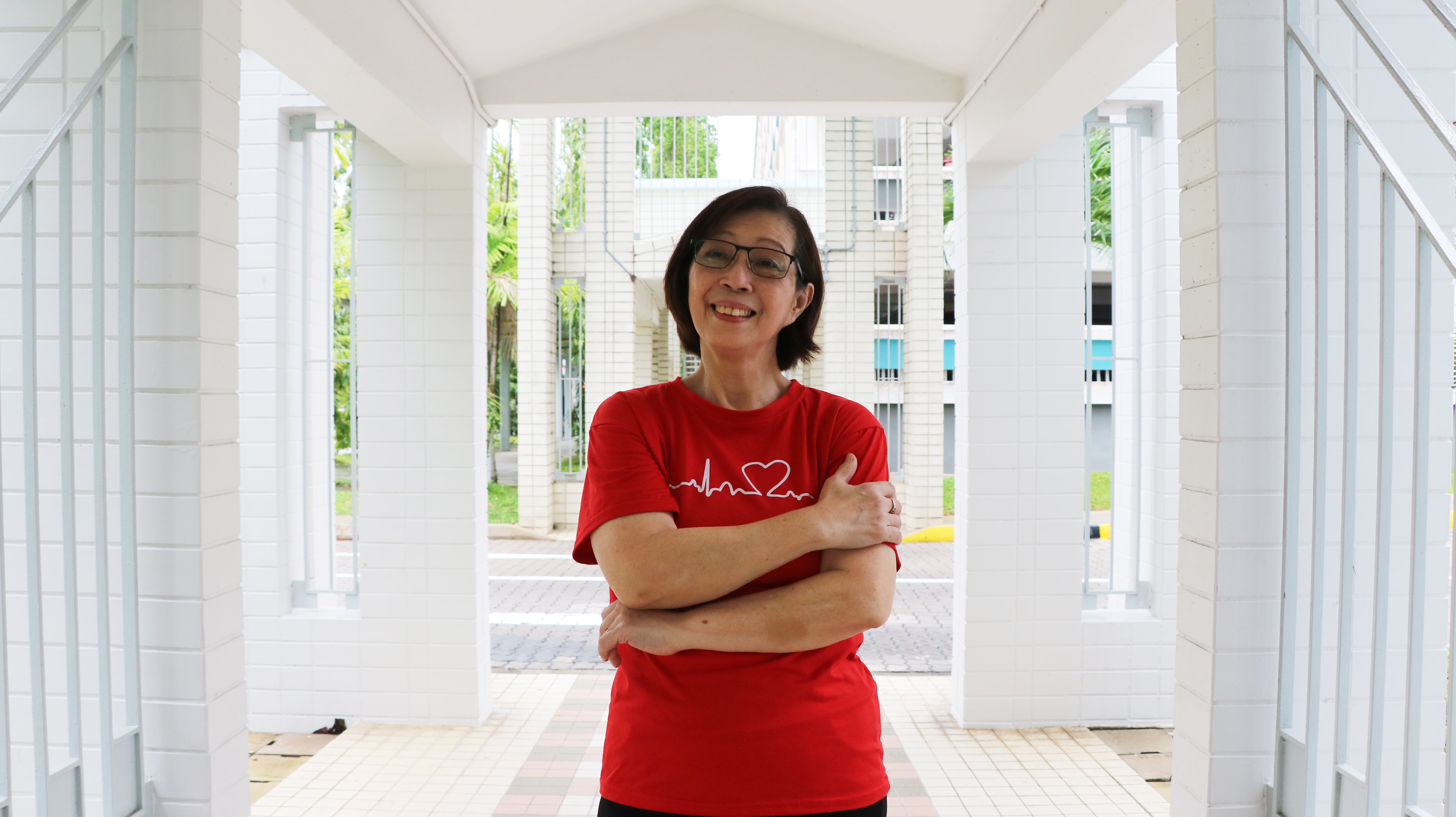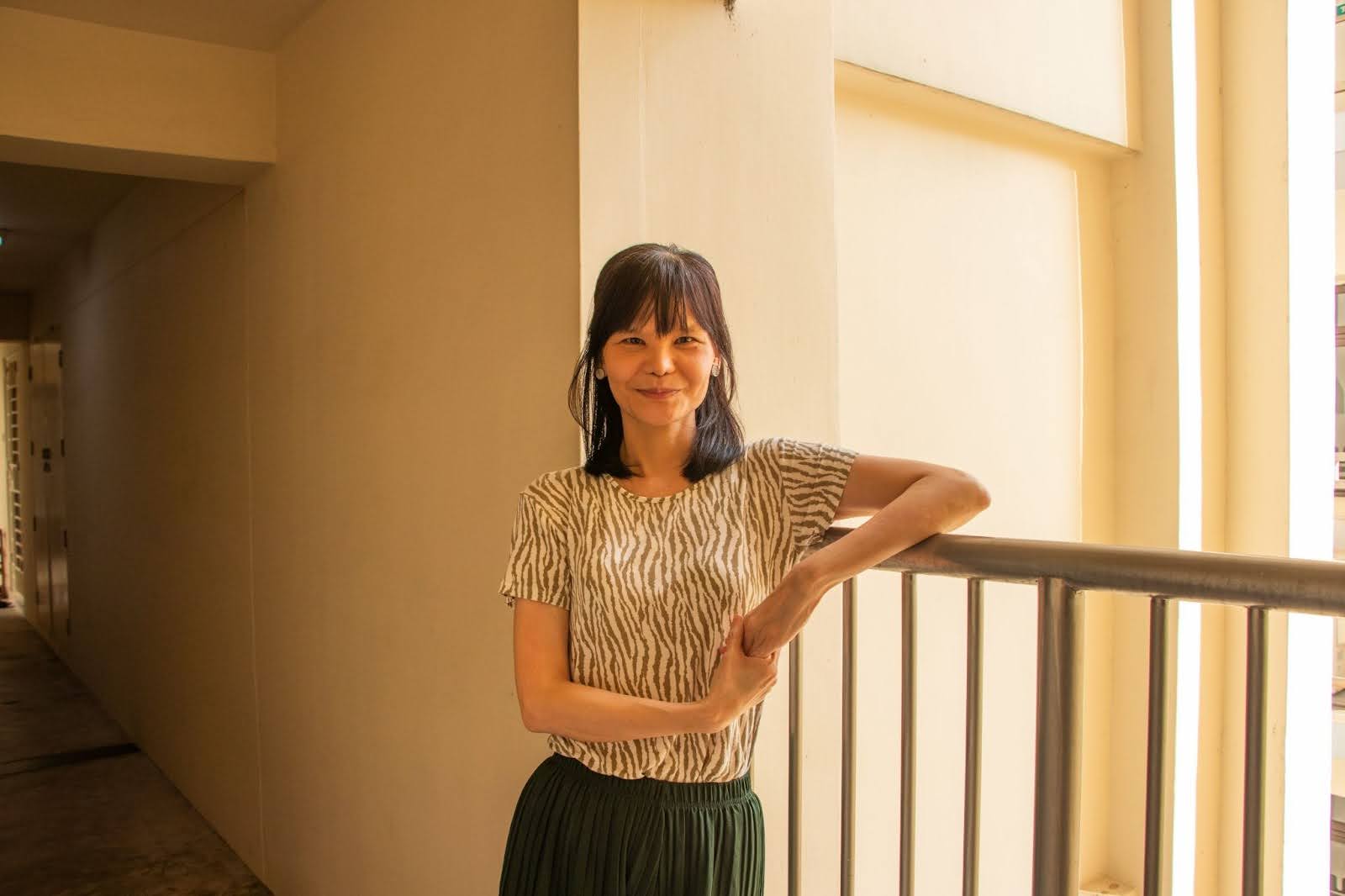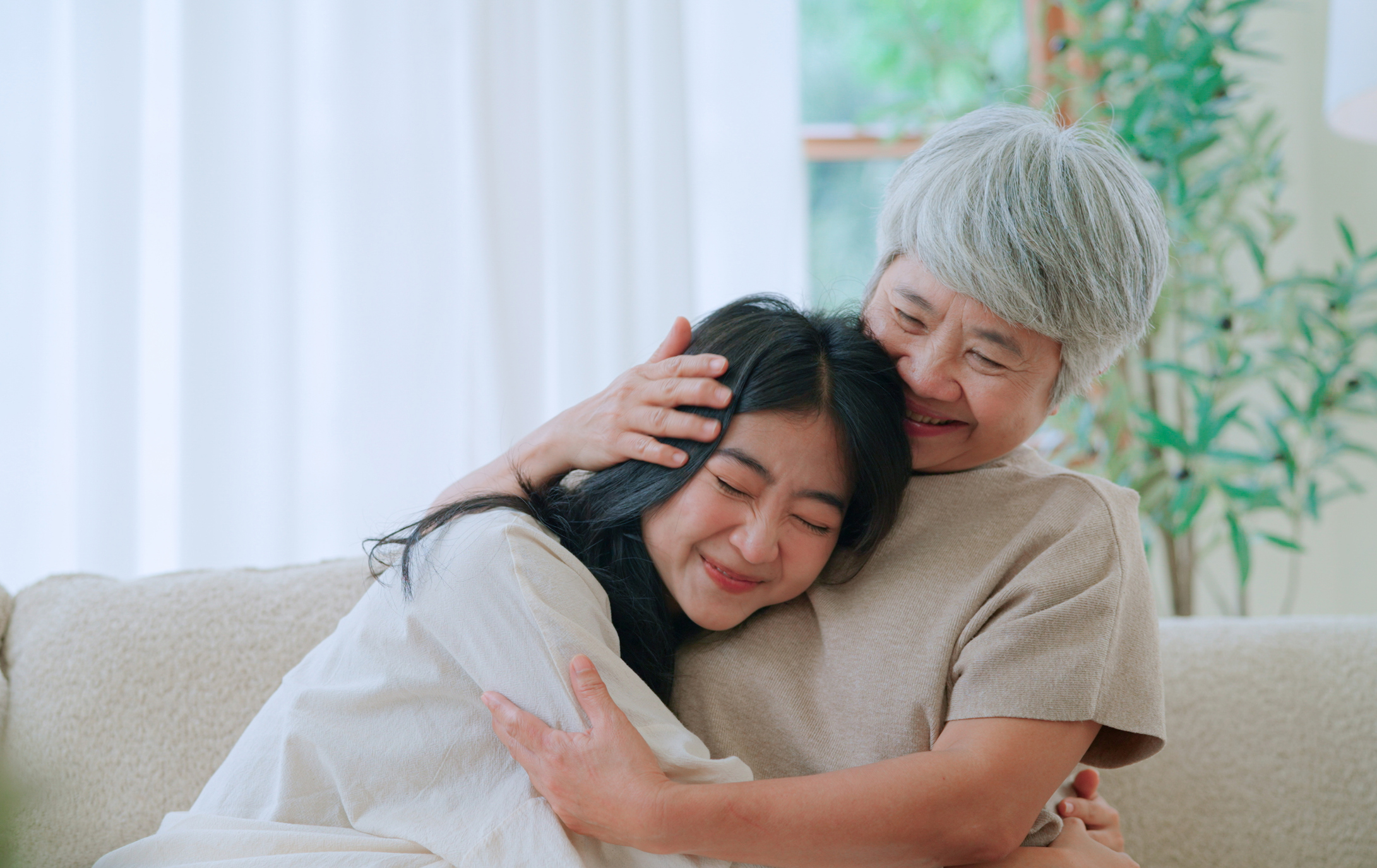For many of us, our mums were our whole world when we were growing up: We ran to them when we got a bruise from playing and needed comforting; they made sure we had everything we needed, they fed us our favourite dishes. They were our first teachers, our cheerleaders, our confidantes. They taught us how to be the best person we can be. There was nothing our mums could not do.
So it must be hard to realise that they are human, after all — that they can get hurt and make mistakes, and sometimes need to lean on us for support.
This was how Mdm Veenothani, 49, felt when she discovered two years ago that her mum, Mdm Kathayan, someone she always considered her tower of strength, had started to lose her memory.
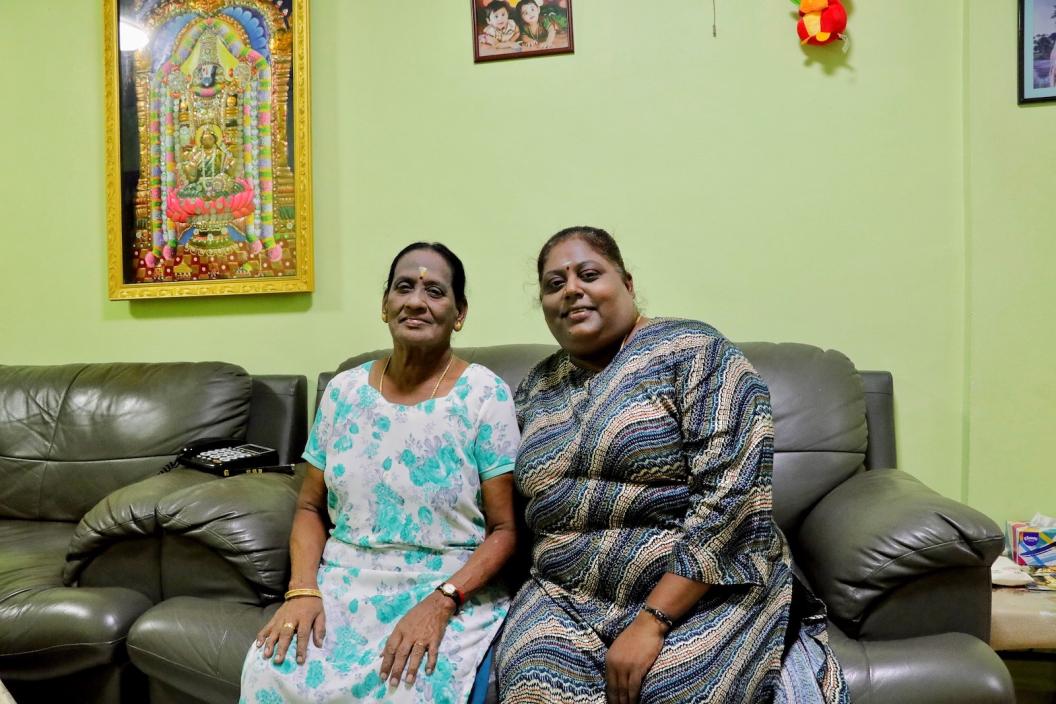
Forgetfulness and other signs of dementia
“It wasn’t like normal forgetfulness,” relates Mdm Veenothani. “I mean, I myself forget things. I’d go to the kitchen to get something and when I got there, I’d forget what I was there for.”
Mdm Veenothani said her mum’s forgetfulness felt more serious — she would forget conversations or misplace things, and they’d have misunderstandings about it. At first, she dismissed it as normal, but became worried when it got more frequent and serious.
“There would be times when she would ask if I had eaten. I’d reply and then not even five minutes later, she’d ask again. Or while we were watching a movie, she’d ask what it was about. I’d answer and then a while later, she’d ask the same question again. That’s when I knew something was wrong.”
Mdm Veenothani took her mother to the doctor for a consultation. “At first they thought it was short-term memory loss due to old age, but eventually, they told me that she has dementia.”
The diagnosis was a shock to her because she had no experience with dementia. “I don’t know anyone who had it. No one in my family had it, and none of my friends have relatives who had it.”
Mdm Veenothani said that she broke down and cried when she found out about her mum’s condition. “It was difficult for me to accept, especially since my mum was a very social person. She had a lot of friends, and did activities all day. She would go with friends to the exercise area at our block in the morning, where she’d spend time with friends before coming home for breakfast and then cook. She loved to cook.”
Her mum’s dementia also meant changes for Mdm Veenothani personally. “I have two sisters — one older and one younger. They help when they can, but they both have families and I live with our mum, so I took up the responsibility of caring for her.” This meant leaving her job of 15 years temporarily to figure out how to care for her.
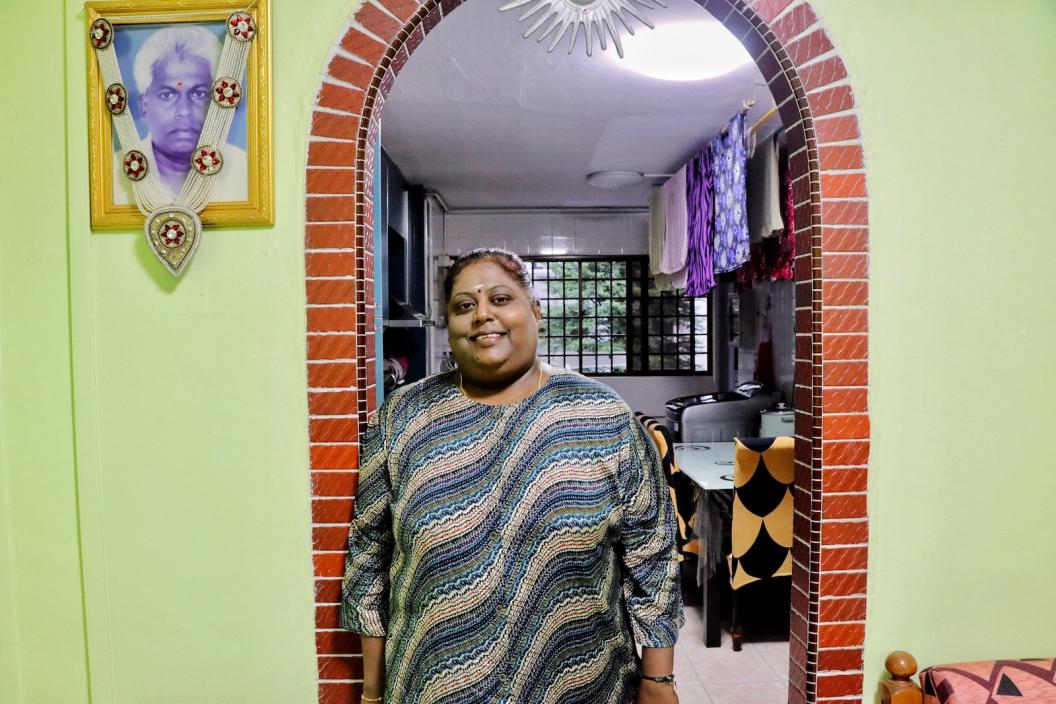
As a new caregiver, Mdm Veenothani was worried that her lack of knowledge would mean she couldn’t properly care for her mother. “I’ve heard stories of people living with dementia who would wander out and get lost. In fact, it had happened to her. She went out one day and didn’t know how to get home. Fortunately, a neighbour saw her, and helped her to take the lift to our floor.”
Mdm Veenothani admitted that her mother’s forgetfulness and repeated questioning was one of the major problems she faced as a caregiver. “She would forget when she was told something. For example, she would tell me about a phone conversation that she thought happened yesterday when in fact it happened days ago. She’d also make up stories, and I would have to check with my sisters or nieces and nephews if they were true.” Situations like these, as well as the repeated questionings and forgetfulness made Mdm Veenothani realise that she did not know how to manage and care for her mum.
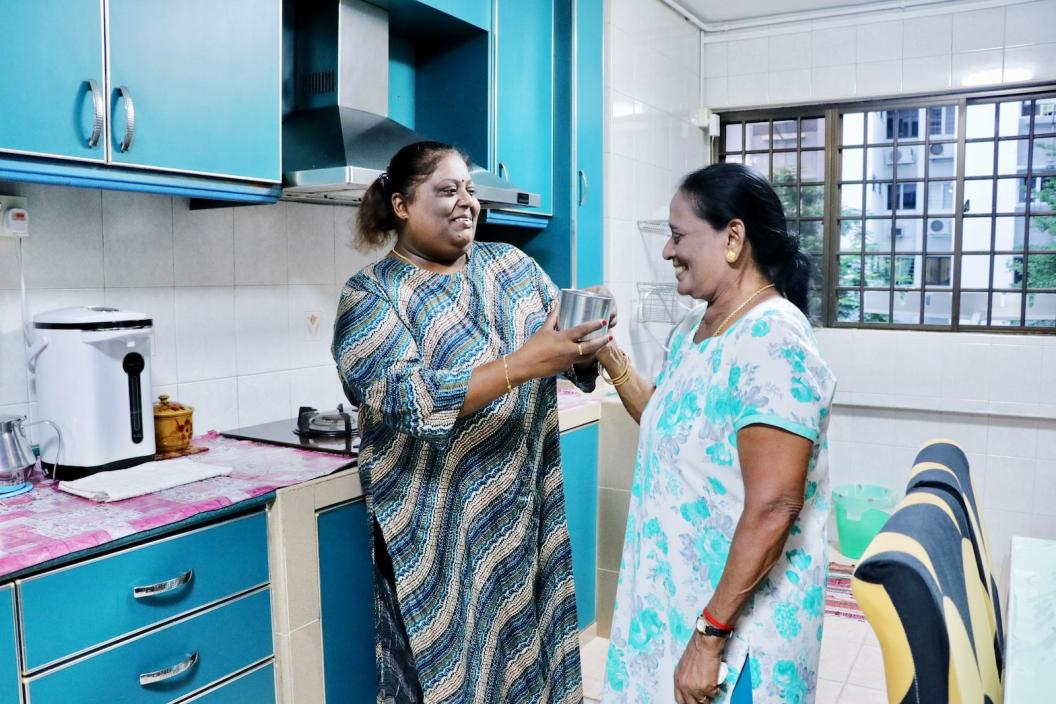
How support groups can help
She was referred to REACH’s Community Outreach Team by Bukit Batok Polyclinic for caregiver support. Mdm Veenothani joined its caregiver support group, which helped her learn more about dementia and other related topics, as well as get tips from caregivers who shared their own experiences. She also learned how to cope with her mum’s changing behaviour and personality.
The support she was given and her own research on how best to care for her mum allowed Mdm Veenothani to work again, albeit on a part-time basis. She has learned to also ask for help from the people around her.
“We installed a camera in the house so that my sisters and I can monitor her even if she’s alone at home. I’ve also asked neighbours to keep an eye out for her. I even talked to the staff at the convenience store downstairs and they have been very helpful and understanding.” She also installed a whiteboard at home to remind her mother to take her meals.
Mdm Veenothani has come a long way from not knowing how to cope when she first learned of her mum’s condition, to becoming more confident about taking care of her. They’ve even gone on a short holiday to India recently, which they both enjoyed. “She really loved going on a holiday. It was good to get away for a while and just experience new things.”
For Mdm Veenothani, the support she has received from those around her has helped her realise that she’s not alone in her caregiving journey. “I want to let other people know that this is something that many people go through. I also hope that people become more aware that it’s dementia that’s causing the changes in them, not them.” For Mdm Veenothani, caregiving is a chance for her to take care of her mother, just like how her mother cared for her when she was a child.
“Of course, there are many challenging times when I would just have to take a deep breath and be strong. But she is my mum — she took great care of my sisters and me when we were young. Now, it’s my turn.”



